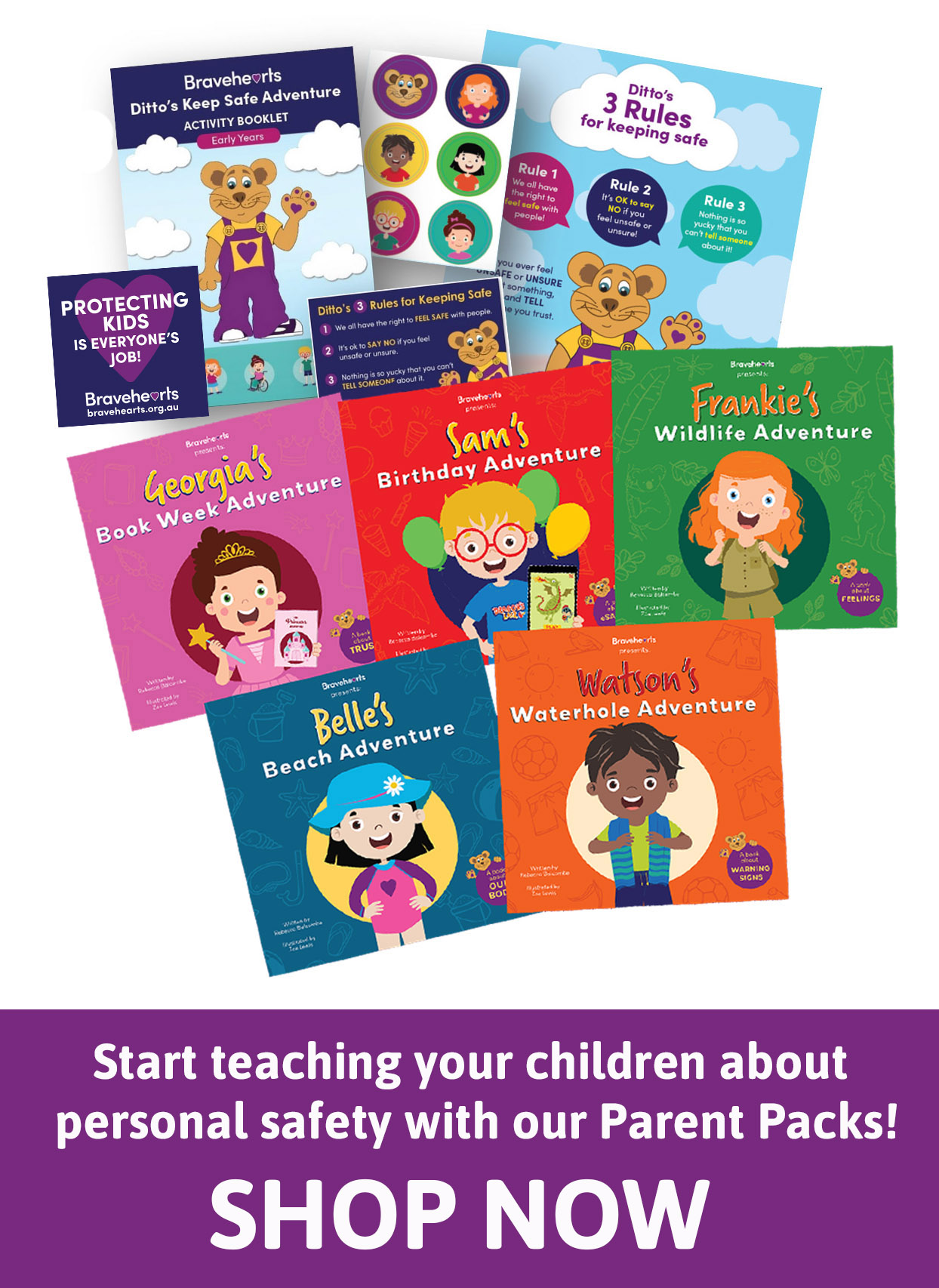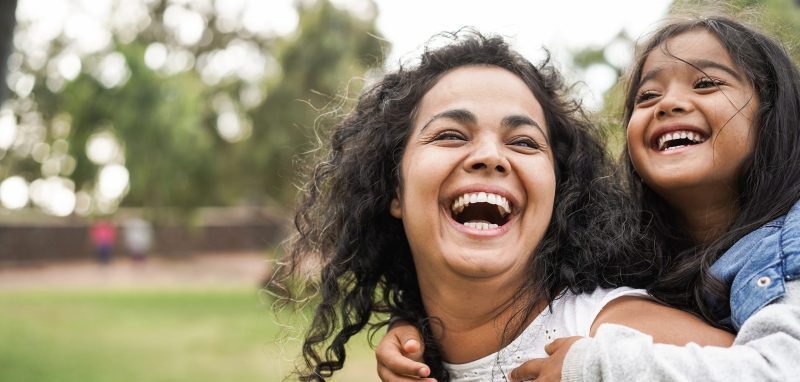About Child Sexual Abuse
- Free Resources
- What is Child Sexual Abuse?
- What are the Signs of Child Sexual Abuse?
- What are the Effects of Child Sexual Abuse?
- What is Grooming?
- What is Consent?
- Sexual Behaviours in Children
- Myths About Child Sexual Abuse
- Online Grooming & Child Sexual Exploitation
- Teaching Children Personal Safety
- Responding to a Disclosure of Sexual Abuse
- Historical Child Sexual Abuse
Helpful Links
- Home > About Child Sexual Abuse > Online Grooming & Child Sexual Exploitation
Online Grooming and Child Sexual Exploitation
Australian Federal Police-led, Australian Centre to Counter Child Exploitation (ACCCE), defines online child exploitation as the use of technology or the internet to facilitate the sexual abuse of a child, including the production and sharing of child sexual abuse material online and ‘sextortion’.
The increase in children and young people accessing the internet has seen a corresponding upward trend in cases of online child sexual exploitation. Australian police have seen an increase in reports of ‘self-produced’ child exploitation material and in some instances, children are willingly sharing photos of themselves, including inappropriate or naked pictures on social media.
In other cases, sex offenders are grooming children through social media platforms and gaming platforms and coercing them into sharing inappropriate or naked pictures of themselves, which are secretly captured and shared in the darkest corners of the internet (Alarming rise in ‘self-produced child abuse material’ sparks online safety warnings, abc.net.au, 2017), or used to extort the child or young person (sextortion).
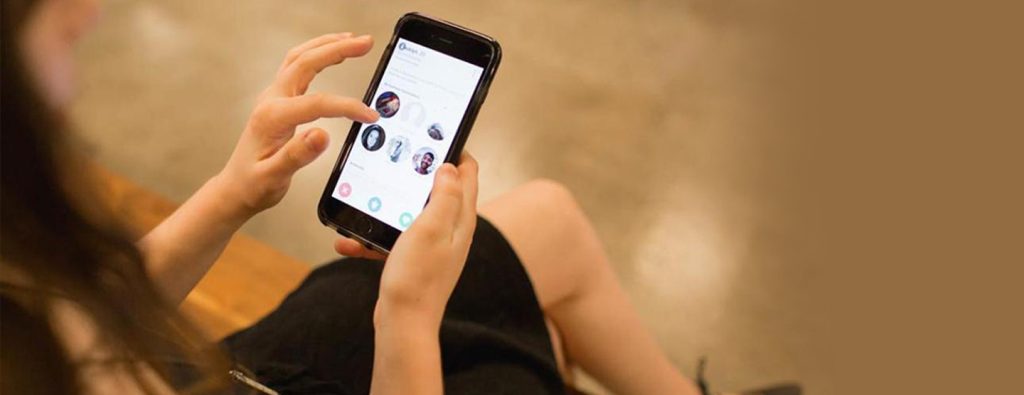
The 2024 Australian Child Maltreatment Study looked into the prevalence of online sexual victimisation of children and young people, and found that:
- 17.7% had experienced online sexual solicitation by an adult.
- 7.6% had a sexual image of themselves shared without their consent.
- 15% had a sexual image of themselves shared without their consent before the age of 13, and 25% experienced online sexual solicitation by an adult before the age of 13.
- Girls are around three times more likely than boys to have experienced online sexual victimisation.
Online grooming
Online grooming is the technology-facilitated process of befriending a child or young person by an adult for the purpose of sexual abuse and exploitation (National Society for the Prevention of Cruelty to Children, n.d.).
Online grooming can take place through phones and on interactive platforms including chat and instant messaging apps, social media, and gaming. Perpetrators use interactive platforms as a gateway to initiate contact with a child or young person.
A key difference between in-person or contact grooming and online grooming is that the stages leading up to when the sexual abuse occurs can happen much faster. Typically, with contact sexual abuse, the lead-up can occur over weeks, months or even years. Offenders take their time to groom the adults and the environment around the child, establishing trust and building the child up gradually to sexual contact. With online grooming, this lead-up stage can happen very quickly, even in a matter of hours, and more often than not, without the knowledge of parents or caretakers.
Online grooming tactics
The eSafety Commissioner website identifies the following tactics commonly used by offenders to groom children and young people online:
- They go onto platforms, games and apps that are popular with children so they can make friends with them.
- They may use an avatar or fake profile to pretend to be someone the child is likely to be interested in or feel they can trust, such as another child or gamer. This makes it easier to trick them into chatting and sharing.
- They find out personal information about the child, by looking at what they have posted online or by asking them questions, to help develop a feeling of connection. As the friendship or ‘relationship’ grows, the child becomes comfortable sharing more about themselves.
- They encourage the child to connect in private chats, direct messages and video calls, which makes it difficult to monitor and report abuse.
- They encourage the child to keep their connection a secret and may try to emotionally and physically separate the child from their family and friends.
- They use the ‘always on’ nature of technology to keep in continuous contact with the child. This can increase the intensity of the relationship and make the contact hard to escape.
- They may use digital technology to track and harass children. This is sometimes called ‘cyberstalking.’
Online sexual offenders
Online sexual offenders may be strangers, but they can also be known to the child, such as a relative, family friend, carer or an authority figure in the child’s life (e.g., a teacher or coach). They can sometimes also be a peer or an older young person (eSafety Commissioner, n.d.).
Perpetrators will usually persuade the child into sexual conversations or activities, such as sending sexual images or videos, sexual live chats and/or video calls. They may also arrange to meet the child or young person and to harm them physically (eSafety Commissioner, n.d.).
Children and young people will at some point access online spaces with or without the knowledge and supervision of parents and caregivers. It is therefore essential to help children and young people understand the signs or ‘red flags’ that an online ‘friend’ may be trying to develop an inappropriate relationship (eSafety Commissioner, n.d.).
Online Grooming 'Red Flags'
The person is asking your child a lot of questions about personal information (such as their age, school, location, home life etc.) soon after meeting them online.
The person starts asking your child for favours and does favours for them in return – abusers often use promises, gifts and favours to gain trust.
The person wants to keep the relationship secret – online groomers typically try to keep their relationships extremely private from the beginning, asking for it to be something ‘special’ just between them.
The person contacts your child frequently and in different ways, like texting, on social media apps and through online chats or asking them to move their chat onto another platform that has end-to-end encryption.
The person asks your child things like who else uses their device or computer, or which room they use it in.
The person compliments your child on their appearance or body and/or tests their boundaries by asking things like, ‘Have you ever been kissed?’, ‘Do you have a boyfriend/girlfriend?’ and the like.
Insists on meeting – tries to make them feel guilty or even threatens them if they are unwilling. Note: not all groomers will attempt to meet in person if their aim is to get sexual images or videos of children (known as ‘child sexual exploitation material’ (CSEM) or ‘child sexual abuse material’ (CSAM)) (eSafety Commissioner, n.d.) or sextortion (more on this below).
Signs a child is being groomed or sexually exploited online
Unfortunately, there are no single clear signs that could indicate a child or young person is being sexually groomed and/or exploited online. Some indicators may include changes in a child’s behaviour, increasingly becoming secretive about online activities, or spending more time alone in their room.
Victims of online grooming are often manipulated to keep it secret and may feel guilty and ashamed (ThinkUKnow, n.d.). Ultimately, the best way to protect your child or young person is to maintain open and non-judgmental communication about their online activity and to encourage them to talk to you if they need help or support.
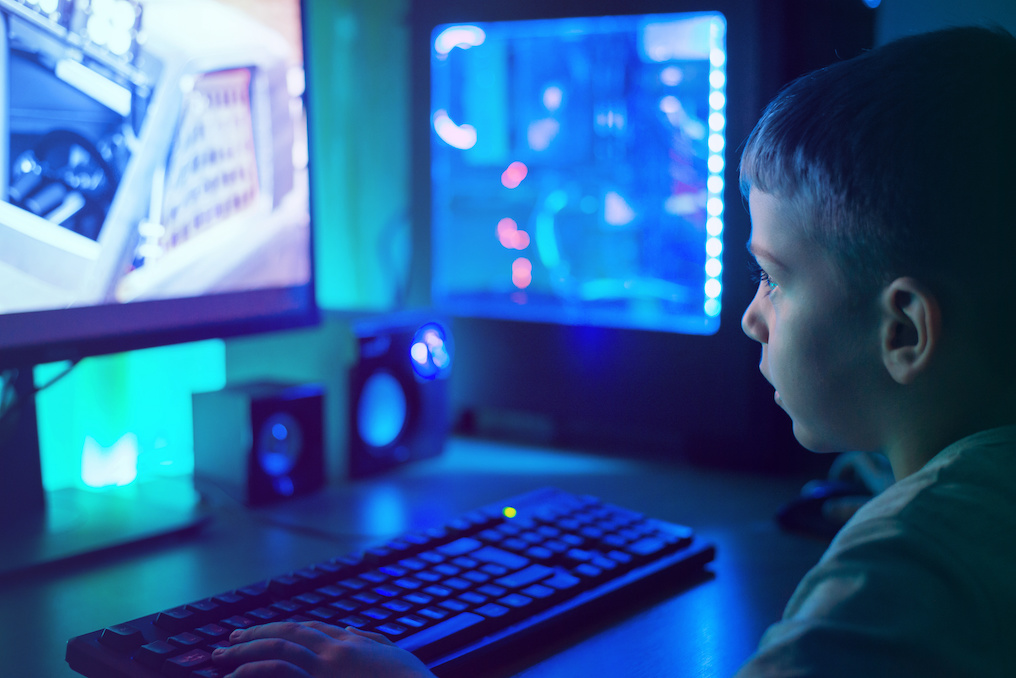
Sextortion
In cases of sexual extortion (sextortion) children and young people are threatened or blackmailed over the sexual images or videos they have shared with the perpetrator. Abusers usually do this to make the child send more images or videos or get sexual online, but scammers also do it for financial gain (eSafety Commissioner, n.d.).
Perpetrators will trick the child into sending sexual content or getting sexual online, often by pretending to be a same-aged peer, then threaten to share the content on social media or to show the child’s family and friends unless they pay money to the blackmailer. Teenage boys are particularly at risk of sextortion (eSafety Commissioner, n.d.).
The National Centre for Missing and Exploited Children (NCMEC) has produced an excellent video to help parents and caregivers understand how children and young people can fall victim to sextortion.
For more information about sextortion and what young people can do in response to sextortion, please see the Australian Centre to Counter Child Exploitation’s (ACCCE) website.

Social media
On social media, children and young people tend to interact with more confidence than they normally would in a face-to-face situation. This can make them susceptible to online child sex offenders who can skillfully pretend to be someone they are not.
Recent research from the eSafety Commissioner (Behind the Screen: Transparency Report, 2025) looked at how Australian children aged 8 to 12 used social media and messaging services and found that:
- 84% had used social media or a messaging service (despite being under the age limit of 13+)
- 76% had used these services by the age of 8
- 40% had their own account(s), 58% used these services via their parent’s account(s), and 28% accessed the services without an account.
In this space more than ever, children and young people need to know they should never give out personal information.
Parents should keep up-to-date with current information about the types of social media platforms that children and young people are using, and understand that their children are likely accessing these platforms even if they are under the age restrictions.
To learn more about children and social networking and how to keep your children and young people safe, please see the eSafety Commissioner website for the most up-to-date information.
Online gaming
One of the biggest child safety risks with gaming is the potential for interaction with strangers via these games. Networked games involve multiple players (in some cases even hundreds of thousands of players). With these games, your child or young person could be communicating with strangers (including adults) through webcam, private messaging or online chat, increasing the risk of contact with predators.
A study by the Office of the eSafety Commissioner, 2018, found that when it comes to online gaming, 52% of children played with people they didn’t know. Statistics such as this suggest that it is vital for parents to place safeguards around their children and young people when it comes to online gaming and educate them about interacting safely online.
For the most up-to-date information for parents about online gaming and keeping children and young people safe, please refer to the eSafety Commissioner website.
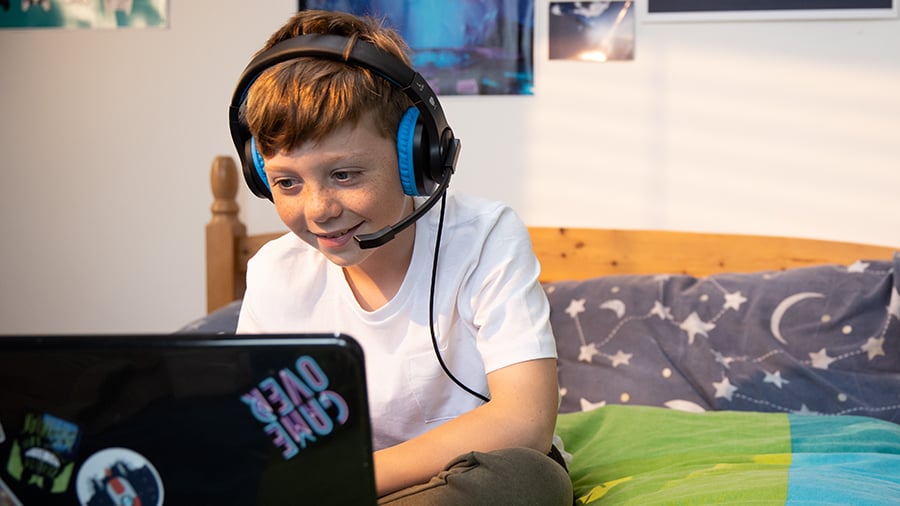
Keeping children safe online
Quick tips for parents and caregivers
- Educate yourself: Check out different sites, games and apps for yourself. The more familiar you are with them, the easier it is for you to talk to your children. Check privacy settings and recommended age restrictions.
- Talk with your children: Have conversations with them about the importance of safety online and show them what that means. For example, let them know you have been hearing about online safety and ask what they think the risks are and what they can do to keep safe. Encourage an ongoing open dialogue with your child, not just a one-off chat.
- Teach your children to think about online behaviour: How much should they be sharing online and what happens to information once shared? Talk about respectful interactions and responsible behaviour, and encourage them to critically think about what they read and see online (remind them that not everything they read may be true, what they share will always be there, and not everyone is who they say they are online).
- Make all devices safer for your children: Familiarise yourself with all sites, games and apps your children use and check the privacy setting on these. Install safety and security software and keep it updated; use internet and spam filters and a pop-up stopper, install monitoring software and monitor downloads to your computer, enable internet browser security and regularly check the internet usage history.
- Come up with a plan around safety: Talk about ways to not only stay safe but also how to respond to anything that happens that may concern them. Let them know they can talk to you or another adult they can trust.
- Monitor: Ensure that your child is using their device in an open area of the house where you can keep a close eye on them. Do not assume though, that this alone is a sufficient protective measure – be vigilant and monitor your child’s activity.

Tips to share with your children
Reinforce regularly with your children the following online safety rules:
You should NEVER:
- Tell anyone your full name, address, phone number or school.
- Send a photo of yourself to anyone you don’t know, especially one that identifies where you live, your name or where you go to school (including your school uniform).
- Tell anyone credit or bank details (or any other personal details).
- ‘Friend’ or talk to someone online who you do not know in real life.
- Make plans to meet anyone you met online in real life.
- Talk to anyone who makes you feel uncomfortable.
You should ALWAYS:
- Know it’s okay to block and report anyone who makes you feel uncomfortable online.
- Leave conversations that make you feel unsafe or unsure.
- Question things. People are not always WHO or WHAT they seem online.
- Tell a trusted adult if someone says something to you online that makes you feel uncomfortable or unsafe.
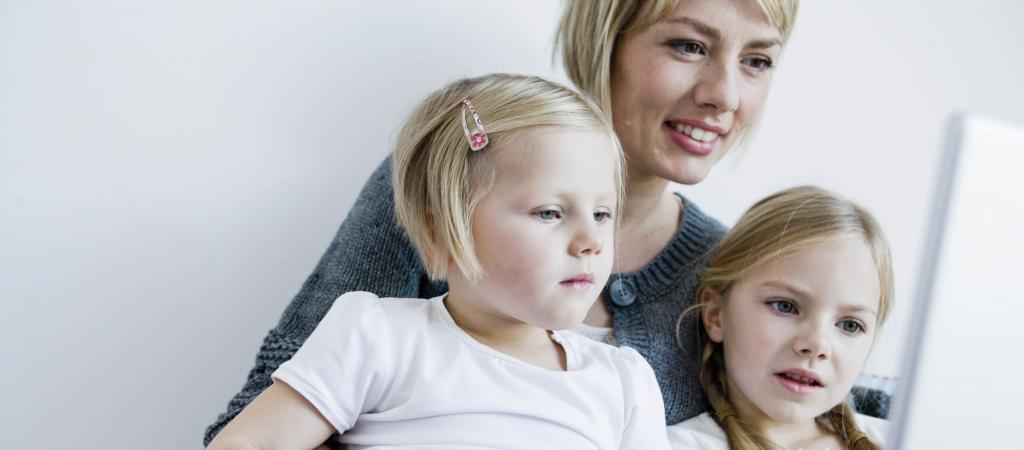
How to write an ‘Online Safety Family Contract’
One of the most proactive steps you can take in protecting your child on the internet is to sit down with them and come up with a family online safety contract. As important as defining rules around online usage, this process also opens up a communication line between you and your child to discuss concerns and unsafe situations.
Rules in the contract may include, for example:
- I will not give out personal information such as my address, telephone number, parent’s work address/telephone number, or the name and location of my school without my parents’ permission.
- I will tell my parents right away if I come across any information that makes me feel uncomfortable.
- I will never agree to get together with someone I meet online without first checking with my parents. If my parents agree to the meeting, I will be sure that it is in a public place and bring my mother or father along.
- I will never send a person my picture or anything else without first checking with my parents.
- I will not respond to any messages that are mean or in any way make me feel uncomfortable. It is not my fault if I get a message like that. If I do I will tell my parents right away so that they can contact the service provider.
- I will talk with my parents so that we can set up rules for going online. We will decide upon the time of day that I can be online, the length of time I can be online and appropriate areas for me to visit. I will not access other areas or break these rules without their permission.
- I will not give out my password/s to anyone (even my best friends) other than my parents.
- I will check with my parents before downloading or installing software or doing anything that could possibly hurt our computer or jeopardize my family’s privacy.
- I will be a good online citizen and not do anything that hurts other people or is against the law.
Agree as a family on what should be in the contract and make sure your kids sign it. Place the contract somewhere visible in the house as a visual reminder of what they agreed to.
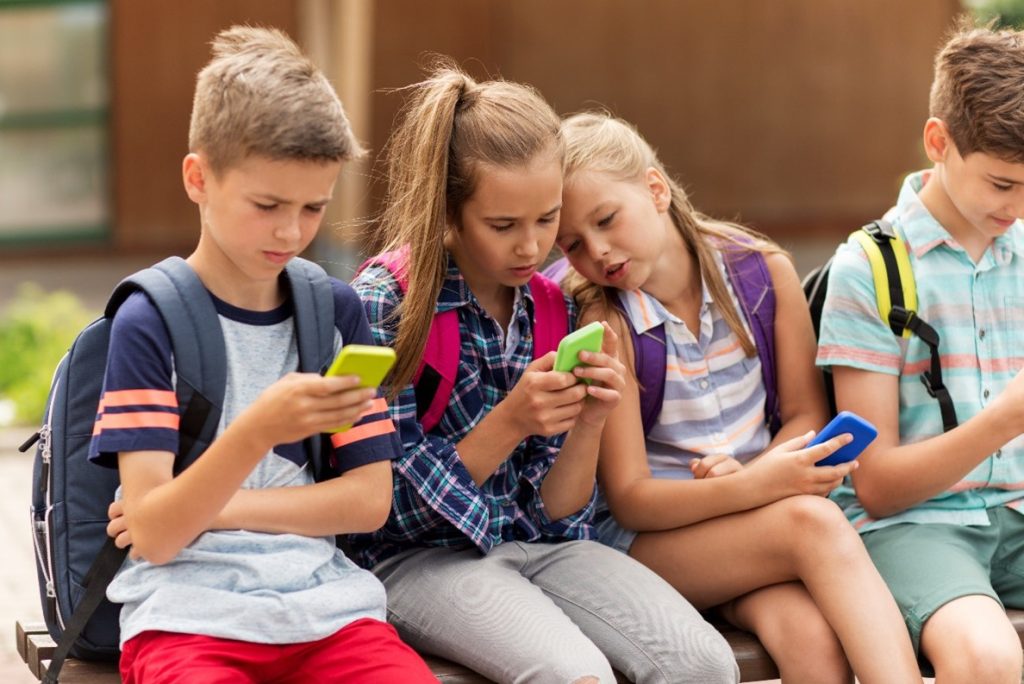
What to do if your child or young person is being groomed or exploited online
If your child experiences inappropriate or unwanted contact or is a victim of online child sexual exploitation, below are some actions you can take (ThinkUKnow, n.d.):
- Trust your instincts. If something feels wrong, then it probably is.
- Support your child and encourage open and non-judgmental conversation – coming forward can take courage and a child may be reluctant to seek help if they fear they may be in trouble for their actions online.
- Remember that it is an offence for an adult to make online contact with a child under the age of 16 with the intention of establishing a relationship for the purpose of sexual exploitation. No physical contact need ever occur for police to step in and investigate. You can find a list of where to report below.
- To assist with the report, if possible, collect screenshots or photos of the interactions and the user’s profile. It is important to do this before blocking or deleting the user or you may lose the chat content.
- Seek professional help or support services for your child. Contact Bravehearts’ Information and Support Line for help in finding services near you.
Where to report online grooming and exploitation
Report inappropriate, suspicious or illegal online behaviour/content to: eSafety Commissioner
Report a child in immediate danger of abuse or exploitation: Police 000 or Crimestoppers 1800 333 000
Report suspected cases of child exploitation or contact with online sex offenders to: Australian Centre to Counter Child Exploitation
 BACK
BACK

